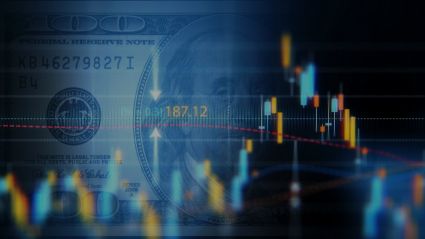
There is no new normal. Not yet. It is too soon to put the physical, emotional, and financial disruption in one column and the heroism, innovation, and health-care advances in another and sum them up.
Whether in the public or private sector, the immediate priority in the short- and mid-term remains monitoring the impact of the coronavirus and shoring up health-care capacity globally. Despite some progress, it continues to be a hugely ambitious task, one that will require the ingenuity, talent, and resources of the entire world. Citizens everywhere must opt in to fighting COVID-19; only then can we harness the most powerful lever of all—our individual behaviors.
Still, we know that the current crisis, like crises that have come before, will leave an indelible mark on the public psyche and human behavior. This period of working from home for those who can is likely to change work patterns for years to come. Telemedicine will play a larger role in our health care. New companies with new ways of testing for viruses or creating vaccines will emerge. We may see a bigger, faster push toward the application of artificial intelligence. Companies, once slow to embrace the digital world, have had no choice but to transform. And aspects of consumer behavior may never be the same.
Citizens everywhere must opt in to fighting COVID-19; only then can we harness the most powerful lever of all—our individual behaviors.
In short, we are seeing an acceleration of the disruptive trends that have been driving business and societal change in health care, e-commerce, mobility, big data, and AI, among others.
And while we do not know what the new normal will look like, we do know that the immediate impact is devastating. The human suffering has been enormous, with millions sickened and tens of thousands of lives lost. Many more have lost their paychecks. Parents are struggling to work, provide childcare, oversee homeschooling, and run overcrowded households. The International Monetary Fund is inundated with requests for emergency financing. And the World Bank estimates that nearly 24 million fewer people will escape poverty across the East Asia Pacific region in 2020 than would have before coronavirus.
Yet, in the face of these challenging circumstances, we are seeing innovation, resilience, and agility that will also leave a permanent mark. As we have seen in past crises, unexpected outcomes can emerge as humanity reacts, adjusting behaviors and attitudes in ways that leave lasting positive impact.
Berlin Packaging, for instance, a company in which we have an investment, teamed with a vineyard in Cleveland, a distillery in Kansas City, and another in New Hampshire to supply hand sanitizer. In each of the partnerships, Berlin provided unconventional packaging—in one case, screw-cap barbecue sauce bottles—due to supply chain pressure.
While we do not expect a packaging company to permanently alter its value proposition, the experience of working with new partners, new distribution channels, and new customers can have a transformative effect. And the knowledge that the organization could muster the agility and purpose to meet a societal need will surely give it the confidence needed to weather future storms.
Moderna, a portfolio investment since 2018, demonstrated remarkable innovation and agility earlier this year when its team designed and manufactured a novel vaccine targeting the COVID-19 Spike (S) protein in partnership with the National Institutes of Health in a matter of weeks following the sequencing of the virus. That vaccine is already being tested in a clinical trial in healthy subjects.
There are stories like this happening around the world, whether it be as grand as a consortium of pharmaceutical companies working with the Bill and Melinda Gates Foundation to develop COVID-19 drugs or as modest as Puget Sound Energy, another company in which we have an investment, waiving interest charges on late payments and offering bill payment support programs to those in need. Businesses large and small are finding ways to give back. It’s harder for a toll road perhaps, but Highway 407, running east-west just north of Canada’s largest city, has provided $250,000 in gift cards to hospital workers to help those who are helping us.
And, of course, there will be many organizations that are less resilient, tempting investors to try to identify “winners” and “losers.” Our counsel is to be patient. Take the time to identify the changes that are both enduring and progressive. We have learned from past financial disruptions that it is the long-term effects that create the surest opportunities and that lead to lasting financial and societal returns.
As society cautiously proceeds, let our new normal be filled with uncommon collaboration and unlikely partnerships. It is these shifting behaviors that can create sustainable societal and economic resilience. We are committed to this work and to those who are taking it on. Together, we will create the new normal.












